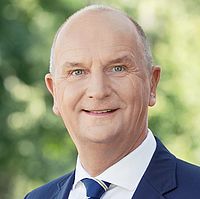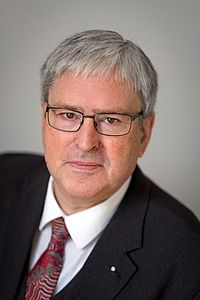Brandenburg
“ The state of Brandenburg is a leader in the expansion of renewable energy and has a great interest in ensuring that more reliable and efficient grid operation is possible despite a fluctuating energy supply. With the WindNODE project, we are establishing successful regional solutions for better system integration of renewables and developing these as models for other regions. This includes, for example, the approaches of the regional power plant in the Uckermark as well as various individual projects in the Lusatia energy region.”
Dr. Dietmar Woidke, Minister-President of the state of Brandenburg
Foto: www.brandenburg.de
Energy Transition In Brandenburg
More than one tenth of the energy consumed in Germany is produced in Brandenburg. With a mix of renewable and conventional energy, Brandenburg is a reliable supplier of affordable and environmentally friendly electricity from domestic sources. Brandenburg also numbers among the front runners in Germany in the area of wind and solar power.
Already since 1990, the Ministry for Economic Affairs has been supporting renewable energy production, for example through the REN programme. As a result, Brandenburg received the Leitstern award for renewable energy ahead of all other German states in 2008, 2010 and 2012.
The 2030 Energy Strategy passed by the state government in 2012 therefore focuses on system integration of the renewable energy carriers as well as coupling of the electricity, heat and mobility sectors.
The final energy consumption should be lowered by 23 percent by 2030. This corresponds to an average of 1.1 percent per year. The CO2 emissions should be reduced by 72 percent by 2030, relative to the internationally typical reference year of 1990. In addition, renewable energy should make up 40 percent of the final energy consumption and at least 32 percent of the primary energy consumption.
Distributed energy generation from renewable sources also contributes to value creation in the region. It creates new jobs in industry, trades and research. If domestic energy sources are utilised more intensively, this reduces the dependence on importing fossil energy carriers into Germany.
In order that the energy produced here can breliably reach the industrial consumption centres, Brandenburg is committing to a rapid expansion of grid infrastructure. However, the expansion of renewable energy production and the power grids results in grid fees that are significantly above the German average. Brandenburg is therefore working to ensure that the costs of the energy transition are distributed fairly and justly.
For better system integration of renewable energy, it is necessary to intensify both the grid expansion and the development of storage technologies. Alongside the challenge of guaranteeing a reliable supply of energy 24/7, 365 days a year, energy must still remain affordable. This is why Brandenburg is continuing to rely on conventional energy carriers as a transitional technology until renewables can ensure a continuously reliable energy supply.
The energy transition in Germany offers numerous opportunities and challenges for the energy and industrial state of Brandenburg. Statistically, energy technology encompasses roughly 6,000 companies and over 56,000 jobs in Berlin and Brandenburg, making it an industry of strategic importance for the capital region.
Research and development in the fields of energy and climate will therefore continue to be strongly supported. Energy technology is part of the 2030 Energy Strategy and the Berlin-Brandenburg innovation strategy as well as the state-sponsored cluster approach. The 2030 Energy Strategy continues to call for the participation of diverse interest groups and seeks to promote acceptance of the necessary measures. A clear demonstration of the competence of the region can be seen in the activ e contributions of numerous companies from Berlin and Brandenburg participating in the WindNODE joint project as part of the funding programme SINTEG of the federal government since 2017.
“ As a model region for an intelligently networked, flexible energy system, WindNODE is rising to the challenges and needs of the energy transition. The showcase region demonstrates what technological and digital solutions that guarantee a reliable and efficient energy supply in the face of fluctuating electricity production can look like. The state of Brandenburg can contribute its experience in the interplay of conventional and renewable energy carriers.”
Prof. Dr. Jörg Steinbach, Minister for Economy and Energy in the state government of Brandenburg
Foto: MWE / Till Budde

